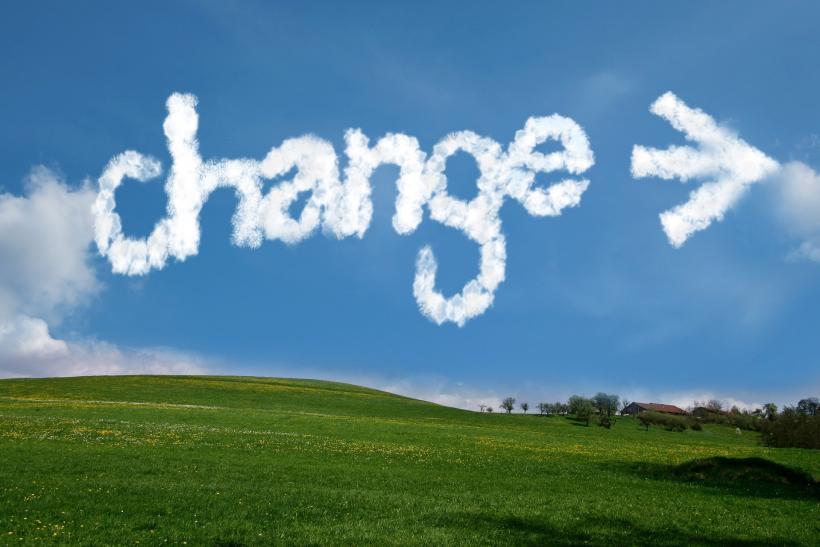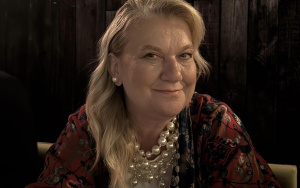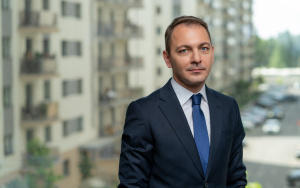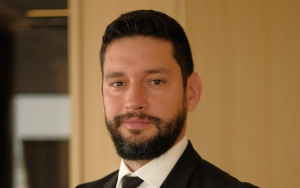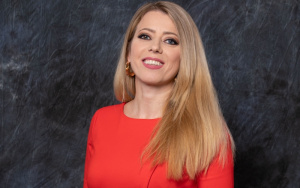When times are turbulent and the path unclear, you need a savvy guide to show you the way back to yourself and into your future. Chris Nel is one such guide.
Energy and kindness, pragmatism and high-mindedness, vulnerability and strength – these are the words that come to mind when you meet Chris Nel, when you hear him speak and watch him in action. His experience is rich and compelling. His approach is mind-catching and heart-opening.
Here is his invitation to learning, awareness, dynamic thinking, personal clarity, vulnerability, kindness, love and meaning.
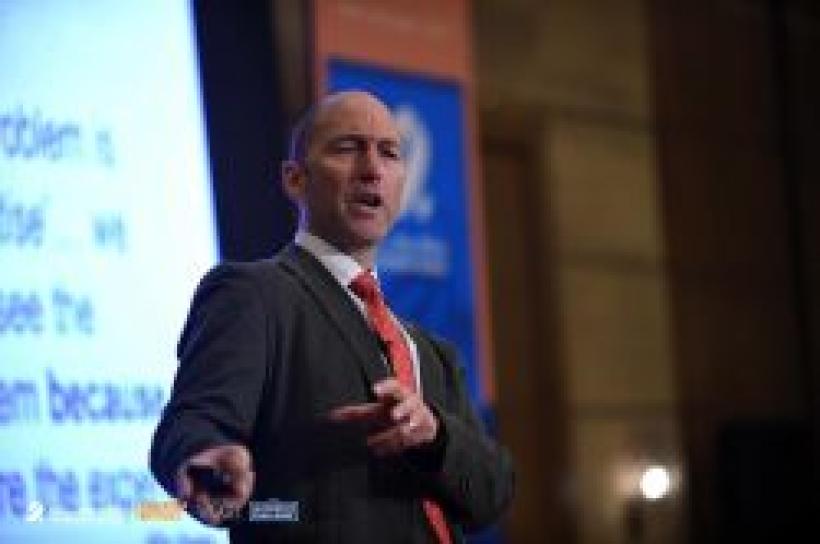 Chris Nel is the co-founder of Quest Leadership Ltd. He is a Kouzes & Posner Master Facilitator and Coach. After serving as an officer with the Royal Marine Commandos in Northern Ireland, Hong Kong, Cyprus, Norway, Belize, Brunei and in the first Gulf conflict, Chris brought his leadership experience into civilian life.
He worked with the senior executive teams of FTSE/Fortune500 organisations to initiate and facilitate strategic change. Chris was a consultant and then partner at Tom Peters Company, which he left after nine years to set up Quest Leadership and provide leadership development services.
What keeps you energized?
Helping people become more adaptive, in a world that is changing faster than any of us feel comfortable with.
Chris Nel is the co-founder of Quest Leadership Ltd. He is a Kouzes & Posner Master Facilitator and Coach. After serving as an officer with the Royal Marine Commandos in Northern Ireland, Hong Kong, Cyprus, Norway, Belize, Brunei and in the first Gulf conflict, Chris brought his leadership experience into civilian life.
He worked with the senior executive teams of FTSE/Fortune500 organisations to initiate and facilitate strategic change. Chris was a consultant and then partner at Tom Peters Company, which he left after nine years to set up Quest Leadership and provide leadership development services.
What keeps you energized?
Helping people become more adaptive, in a world that is changing faster than any of us feel comfortable with. These are disruptive times, that bring about significant change and discomfort. It is common to lose your footin
g at times, and not know exactly what to do. When people find themselves under pressure, they tend to go back to what they already know, missing the fact that their experience thus far does not necessarily cover the current set of circumstances, which makes them overlook the clues that reveal the current situation. You can feel people’s pain in that moment. When they are afraid, people begin casting blame and they tend to become aggressive. They react instead of responding.
In the military we are trained to deal with volatility and uncertainty. In the corporate world that doesn’t come so easily to people.
My role is to guide people from being wide-eye stared to being collected. That is when they come out of the security zone and become cooperative and collaborative. It’s when they move from seeing only one option to regaining their ability to consider and figure out several options.
I help people be more adaptive by guiding them to identify tools and develop their awareness. We first need to learn and understand what is happening, then come up with a version of a plan, take action and reclaim some control. Someone needs to take charge and guide people to regain their confidence and believe there is a way through.
Leadership coaching is a service and I am happy to provide it.
Talk to us about the management/leadership dynamics in the process of managing change.
You need both. Management is about the control of change. Leadership is about inspiring others to want to deliver the change.
You can do change without management – it’s painful but possible. But you can’t deliver change without leadership. The stronger the leadership the greater and faster the change you can effect.
How do we know how to change directions, instead of going too far in the right direction?
Many times you don’t know. You need to think of your plan as an estimate, a best guess, and be prepared to change it.
You need to learn the impact your solution has and change it if need be. I have noticed that the more senior the position the harder it is for people to accept the need for change and embrace it, as there seems to be a lot more at play – ego, reputation, or they may think people may lose confidence in their vision or decisions. It’s usually a less senior staff that begins the move in a different direction.
Ready, Fire, Aim! – give us the gist of it and talk to us about the benefits of aiming last.
Traditionally, organizations adopt a R
eady, Aim, Fire approach to strategy. Actually it’s more like:
Ready, Aim, Aim, Aim, Aim, Aim, Aim, Aim, Fire only if you’re really sure it will work first time.
The only way to discover what will work in an uncertain / unfamiliar / confusing environment is to try stuff out and see what works. The catch is you have to be prepared to admit that your original plan was flawed… and then change it based on what you’ve learned. In many corporate environments that approach is too risky. The paradox is that it is increasingly more risky to take the
Ready Aim Aim, Aim, Aim, Fire approach.
The benefit of
Ready Fire Aim in an uncertain, novel environment is that
when you have tried and learned something you’re now in a position to take a more informed aim.
How is the current level and pace of change changing us – individuals, organizations, leadership?
We are all getting better at learning. We have to, or we will quickly become irrelevant. Some organizations have recognized the need to be more adaptive. Others are still in denial. Most are in the middle somewhere.
The adaptive pioneers will do better than their watch and copy peers.
How do you stay conscious, aware and authentic in such turbulent times?
I run a small business that is vulnerable to a significant number of disruptive forces. My clients take me into many volatile / uncertain environments/markets. I am also the parent of a 15-year-old!
Let’s talk a bit about the power of disruption – what are some benefits of disruption?
I think people are wired for permanence and the known – because that is what is familiar and safe. But
we need to tune in and see disruption and change as an opportunity. What helps is close and solid relationships. You need to stay connected. My wife, my son, my team are my sounding board – supportive relationships are essential when dealing with uncertainty. Otherwise you are imprisoned by your own fearful mind.
How can a leader spot the need for the organization to change and how do they go about it?
Leaders have to develop their vigilance. Being receptive to the clues that present themselves on a daily basis is critical. Not being distracted by the busyness and routine or blinded by the familiarity of our environment is imperative. It’s like being a good detective - you see things happening that others don’t and register them and their implications for the organization. It is the problem of expertise. Experts really struggle to see the flaw in their solution. As Einstein said: the brain that created the problem is incapable of solving it.
For example, Blockbuster managed to ignore the development of digital movie streaming for 5 years! Bu before we mock them and other examples of poor situational awareness, we should be able to list the disruptive forces in our own organization and how we are adapting. It’s easy to see it in retrospect and in other people’s businesses!
What’s your key to resiliency?
We have to pay attention to a number of things, both in ourselves and our people. The list I find most useful is based on the research of Kelly Anne McKnight:
Supportive relationships;
Emotional wellbeing;
Physical Health;
Personal Clarity - the key to which is
having supportive people to help you see and discuss your options;
Dynamic Thinking – which means
you need to be active rather than passive about the situation. You need to weigh the pros, cons and adopt a growth (as opposed to fixed) mindset when thinking about the future. What I do is make a list of
controllables and
uncontrollables. After that, I tear the list of uncontrollables, so that people can take their mind off what they cannot control and keeps them fearful and on the defense, and instead start putting their energy into what they can do and gives them a sense of confidence and control. This also opens their mind to looking at the various options available.
What does it mean to be kind?
The root of the word
kindness is
karos - which means
‘being prepared to suffer for.’ If we care enough about a person or group of people that we are prepared to put ourselves out to facilitate their happiness & growth … that to me is kindness.
The path to kindness is vulnerability – it generates openness and trust. The more vulnerable you are, the more free people feel to be kind to you.
What impact do you think kindness has today, when we are on the verge of another financial, economic and spiritual crisis? How does it make a difference?
Kindness brings out kindness in others. In a crisis, the impact of us being kind is that the people around us are more likely to be kind to each other. This builds trust and collaboration, which is more likely to result in a positive outcome than acting in an unkind / selfish way.
How has serving added to your leadership skills?
Leading soldiers, especially in an operational environment, has taught me that
leadership is a service we provide, not a status that we are awarded. Providing the service of leadership to my family, to my clients and peers is one of the most rewarding aspects of my life.
What was the most interesting thing to adapt to, in terms of military life?
I think I was very naive when I joined. I thought we were the good guys and we would always be fighting the bad guys! I learnt that life is not that simple.
Was there anything you especially missed about civilian life?
I missed being in control of my time. You are always ‘on duty’- even when you’re on leave you can be recalled. It’s tough for families!
What did you learn about yourself while serving that you can now count on, for strength and inspiration?
I’m not a quitter. By which I mean that
I don’t give up. Having faith in yourself and what you can do leads to perseverance and gives you strength and confidence. You feel proud to realize you can actually do what you put your mind to.
What phrase or word will never be the same, now, that you have served?
“Just War” - All wars are stupid and unnecessary.
Wars always end with people talking to each other, so why not leave out all the killing and destruction?
Is there anything you wish civilians understood about military service?
It’s nothing like the movies.
When you were first discharged, what are some things about civilians that were difficult for you to deal with?
I found civilians to be very ‘rights’, rather than ‘responsibility’ oriented. It felt very materialistic and self-centered. Political apathy also frustrated me (and still does). But we should know that we get the politicians we deserve!
How do we cure cynicism?
Cynicism is a reaction, not a response. It’s a self-protective mechanism and it can be very toxic - as it tears down solution, vision, hope. Human connection can inspire a thoughtful response, as it helps people look at the options available to go forward.
Please recommend a book to our readers.
Man’s Search for Meaning, by Viktor Frankl. This, for me, is the best description of self-determinism I have ever read.
Please recommend a thinker or someone who inspires you.
Tom Peters - I love his provocation. It was a huge privilege to work alongside Tom on a number of client projects! For me, Tom is the original Business Guru in the real sense of the word - 'teacher'. His thinking is original - unlike so many of the current breed of ‘gurus', who are repackaging old ideas.
Tom’s motivation is to challenge business leaders to really think about the environment they operate in. A lot of speakers/authors are trying to sell their own books / push their consultancy services. Tom is the real deal! He is never happy. He is always searching for better ways of doing things. He is a professional irritant! But he adds extraordinary value whenever he shows up. Some people hate him because he makes them feel uncomfortable. But most people start thinking much more seriously about their business.
Looking back, he’s got most things right and a few things wrong! Not a bad record.
Are you the person you needed when you were young?
Well, I wouldn’t be the person I am today if I hadn’t been the youngster I was, so ‘Yes’. And ‘No’, because if I hadn’t been so lucky I would not have made it to adulthood. I had more than a fair share of near misses! (I was definitely not the person my mother needed me to be when I was young -
Sorry, Mum!)
Something you’d love to share and I haven’t asked?
I believe
we all have more choice in how we live our lives than we allow ourselves to believe. Part of the joy of coaching, for me, is the opportunity to help reveal a wider spectrum of choices to people who feel trapped or victimized by circumstances.
What do you think is the most common cause to people not seeing more of their options? And is there a common solution to that blindness?
Fear is limiting, therefore it’s blinding. You need to test and adjust your assertions, to make sure they accurately reflect your reality.
The inner compass that helps you find your way is to ask: What other choices have I got?
What has not changed, even after you have been through military life?
I am more optimistic about human nature. In a crisis, in testing situations, many people become more generous, more kind, more courageous. I am more proud to be a human being now, after I have served. I know now that there is good and evil in the world. However, while I have seen terrible things, I have also seen more amazing things while serving.
Now I am optimistic good will win out.
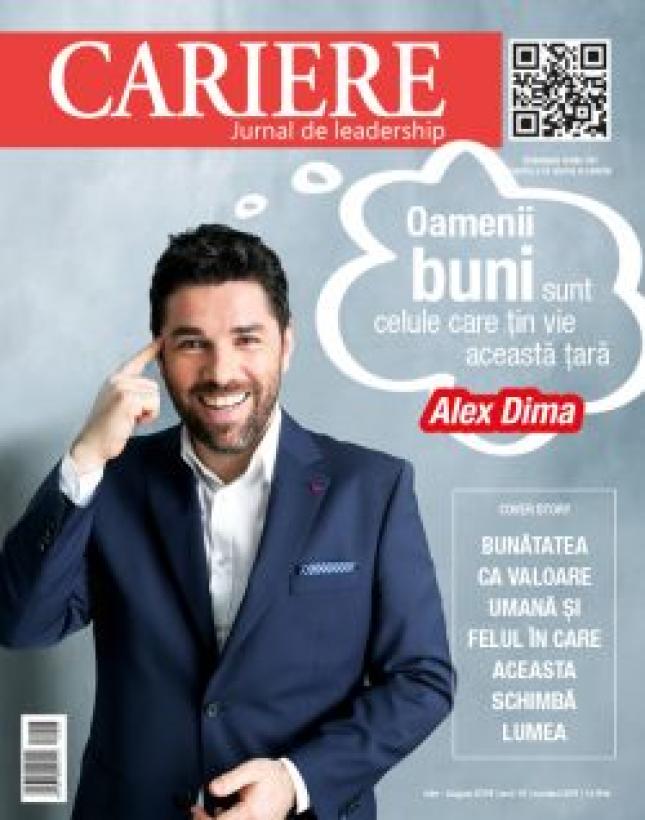 This interview is also available in Romanian, in Revista CARIERE – 259 / July-August, 2019. To subscribe, click HERE.
This interview is also available in Romanian, in Revista CARIERE – 259 / July-August, 2019. To subscribe, click HERE.
 Chris Nel is the co-founder of Quest Leadership Ltd. He is a Kouzes & Posner Master Facilitator and Coach. After serving as an officer with the Royal Marine Commandos in Northern Ireland, Hong Kong, Cyprus, Norway, Belize, Brunei and in the first Gulf conflict, Chris brought his leadership experience into civilian life.
He worked with the senior executive teams of FTSE/Fortune500 organisations to initiate and facilitate strategic change. Chris was a consultant and then partner at Tom Peters Company, which he left after nine years to set up Quest Leadership and provide leadership development services.
What keeps you energized?
Helping people become more adaptive, in a world that is changing faster than any of us feel comfortable with. These are disruptive times, that bring about significant change and discomfort. It is common to lose your footing at times, and not know exactly what to do. When people find themselves under pressure, they tend to go back to what they already know, missing the fact that their experience thus far does not necessarily cover the current set of circumstances, which makes them overlook the clues that reveal the current situation. You can feel people’s pain in that moment. When they are afraid, people begin casting blame and they tend to become aggressive. They react instead of responding.
In the military we are trained to deal with volatility and uncertainty. In the corporate world that doesn’t come so easily to people.
My role is to guide people from being wide-eye stared to being collected. That is when they come out of the security zone and become cooperative and collaborative. It’s when they move from seeing only one option to regaining their ability to consider and figure out several options. I help people be more adaptive by guiding them to identify tools and develop their awareness. We first need to learn and understand what is happening, then come up with a version of a plan, take action and reclaim some control. Someone needs to take charge and guide people to regain their confidence and believe there is a way through. Leadership coaching is a service and I am happy to provide it.
Talk to us about the management/leadership dynamics in the process of managing change.
You need both. Management is about the control of change. Leadership is about inspiring others to want to deliver the change. You can do change without management – it’s painful but possible. But you can’t deliver change without leadership. The stronger the leadership the greater and faster the change you can effect.
How do we know how to change directions, instead of going too far in the right direction?
Many times you don’t know. You need to think of your plan as an estimate, a best guess, and be prepared to change it. You need to learn the impact your solution has and change it if need be. I have noticed that the more senior the position the harder it is for people to accept the need for change and embrace it, as there seems to be a lot more at play – ego, reputation, or they may think people may lose confidence in their vision or decisions. It’s usually a less senior staff that begins the move in a different direction.
Ready, Fire, Aim! – give us the gist of it and talk to us about the benefits of aiming last.
Traditionally, organizations adopt a Ready, Aim, Fire approach to strategy. Actually it’s more like: Ready, Aim, Aim, Aim, Aim, Aim, Aim, Aim, Fire only if you’re really sure it will work first time.
The only way to discover what will work in an uncertain / unfamiliar / confusing environment is to try stuff out and see what works. The catch is you have to be prepared to admit that your original plan was flawed… and then change it based on what you’ve learned. In many corporate environments that approach is too risky. The paradox is that it is increasingly more risky to take the Ready Aim Aim, Aim, Aim, Fire approach.
The benefit of Ready Fire Aim in an uncertain, novel environment is that when you have tried and learned something you’re now in a position to take a more informed aim.
How is the current level and pace of change changing us – individuals, organizations, leadership?
We are all getting better at learning. We have to, or we will quickly become irrelevant. Some organizations have recognized the need to be more adaptive. Others are still in denial. Most are in the middle somewhere. The adaptive pioneers will do better than their watch and copy peers.
How do you stay conscious, aware and authentic in such turbulent times?
I run a small business that is vulnerable to a significant number of disruptive forces. My clients take me into many volatile / uncertain environments/markets. I am also the parent of a 15-year-old!
Let’s talk a bit about the power of disruption – what are some benefits of disruption?
I think people are wired for permanence and the known – because that is what is familiar and safe. But we need to tune in and see disruption and change as an opportunity. What helps is close and solid relationships. You need to stay connected. My wife, my son, my team are my sounding board – supportive relationships are essential when dealing with uncertainty. Otherwise you are imprisoned by your own fearful mind.
How can a leader spot the need for the organization to change and how do they go about it?
Leaders have to develop their vigilance. Being receptive to the clues that present themselves on a daily basis is critical. Not being distracted by the busyness and routine or blinded by the familiarity of our environment is imperative. It’s like being a good detective - you see things happening that others don’t and register them and their implications for the organization. It is the problem of expertise. Experts really struggle to see the flaw in their solution. As Einstein said: the brain that created the problem is incapable of solving it.
For example, Blockbuster managed to ignore the development of digital movie streaming for 5 years! Bu before we mock them and other examples of poor situational awareness, we should be able to list the disruptive forces in our own organization and how we are adapting. It’s easy to see it in retrospect and in other people’s businesses!
What’s your key to resiliency?
We have to pay attention to a number of things, both in ourselves and our people. The list I find most useful is based on the research of Kelly Anne McKnight:
Supportive relationships;
Emotional wellbeing;
Physical Health;
Personal Clarity - the key to which is having supportive people to help you see and discuss your options;
Dynamic Thinking – which means you need to be active rather than passive about the situation. You need to weigh the pros, cons and adopt a growth (as opposed to fixed) mindset when thinking about the future. What I do is make a list of controllables and uncontrollables. After that, I tear the list of uncontrollables, so that people can take their mind off what they cannot control and keeps them fearful and on the defense, and instead start putting their energy into what they can do and gives them a sense of confidence and control. This also opens their mind to looking at the various options available.
What does it mean to be kind?
The root of the word kindness is karos - which means ‘being prepared to suffer for.’ If we care enough about a person or group of people that we are prepared to put ourselves out to facilitate their happiness & growth … that to me is kindness. The path to kindness is vulnerability – it generates openness and trust. The more vulnerable you are, the more free people feel to be kind to you.
What impact do you think kindness has today, when we are on the verge of another financial, economic and spiritual crisis? How does it make a difference?
Kindness brings out kindness in others. In a crisis, the impact of us being kind is that the people around us are more likely to be kind to each other. This builds trust and collaboration, which is more likely to result in a positive outcome than acting in an unkind / selfish way.
How has serving added to your leadership skills?
Leading soldiers, especially in an operational environment, has taught me that leadership is a service we provide, not a status that we are awarded. Providing the service of leadership to my family, to my clients and peers is one of the most rewarding aspects of my life.
What was the most interesting thing to adapt to, in terms of military life?
I think I was very naive when I joined. I thought we were the good guys and we would always be fighting the bad guys! I learnt that life is not that simple.
Was there anything you especially missed about civilian life?
I missed being in control of my time. You are always ‘on duty’- even when you’re on leave you can be recalled. It’s tough for families!
What did you learn about yourself while serving that you can now count on, for strength and inspiration?
I’m not a quitter. By which I mean that I don’t give up. Having faith in yourself and what you can do leads to perseverance and gives you strength and confidence. You feel proud to realize you can actually do what you put your mind to.
What phrase or word will never be the same, now, that you have served?
“Just War” - All wars are stupid and unnecessary. Wars always end with people talking to each other, so why not leave out all the killing and destruction?
Is there anything you wish civilians understood about military service?
It’s nothing like the movies.
When you were first discharged, what are some things about civilians that were difficult for you to deal with?
I found civilians to be very ‘rights’, rather than ‘responsibility’ oriented. It felt very materialistic and self-centered. Political apathy also frustrated me (and still does). But we should know that we get the politicians we deserve!
How do we cure cynicism?
Cynicism is a reaction, not a response. It’s a self-protective mechanism and it can be very toxic - as it tears down solution, vision, hope. Human connection can inspire a thoughtful response, as it helps people look at the options available to go forward.
Please recommend a book to our readers.
Man’s Search for Meaning, by Viktor Frankl. This, for me, is the best description of self-determinism I have ever read.
Please recommend a thinker or someone who inspires you.
Tom Peters - I love his provocation. It was a huge privilege to work alongside Tom on a number of client projects! For me, Tom is the original Business Guru in the real sense of the word - 'teacher'. His thinking is original - unlike so many of the current breed of ‘gurus', who are repackaging old ideas.
Tom’s motivation is to challenge business leaders to really think about the environment they operate in. A lot of speakers/authors are trying to sell their own books / push their consultancy services. Tom is the real deal! He is never happy. He is always searching for better ways of doing things. He is a professional irritant! But he adds extraordinary value whenever he shows up. Some people hate him because he makes them feel uncomfortable. But most people start thinking much more seriously about their business.
Looking back, he’s got most things right and a few things wrong! Not a bad record.
Are you the person you needed when you were young?
Well, I wouldn’t be the person I am today if I hadn’t been the youngster I was, so ‘Yes’. And ‘No’, because if I hadn’t been so lucky I would not have made it to adulthood. I had more than a fair share of near misses! (I was definitely not the person my mother needed me to be when I was young - Sorry, Mum!)
Something you’d love to share and I haven’t asked?
I believe we all have more choice in how we live our lives than we allow ourselves to believe. Part of the joy of coaching, for me, is the opportunity to help reveal a wider spectrum of choices to people who feel trapped or victimized by circumstances.
What do you think is the most common cause to people not seeing more of their options? And is there a common solution to that blindness?
Fear is limiting, therefore it’s blinding. You need to test and adjust your assertions, to make sure they accurately reflect your reality. The inner compass that helps you find your way is to ask: What other choices have I got?
What has not changed, even after you have been through military life?
I am more optimistic about human nature. In a crisis, in testing situations, many people become more generous, more kind, more courageous. I am more proud to be a human being now, after I have served. I know now that there is good and evil in the world. However, while I have seen terrible things, I have also seen more amazing things while serving. Now I am optimistic good will win out.
Chris Nel is the co-founder of Quest Leadership Ltd. He is a Kouzes & Posner Master Facilitator and Coach. After serving as an officer with the Royal Marine Commandos in Northern Ireland, Hong Kong, Cyprus, Norway, Belize, Brunei and in the first Gulf conflict, Chris brought his leadership experience into civilian life.
He worked with the senior executive teams of FTSE/Fortune500 organisations to initiate and facilitate strategic change. Chris was a consultant and then partner at Tom Peters Company, which he left after nine years to set up Quest Leadership and provide leadership development services.
What keeps you energized?
Helping people become more adaptive, in a world that is changing faster than any of us feel comfortable with. These are disruptive times, that bring about significant change and discomfort. It is common to lose your footing at times, and not know exactly what to do. When people find themselves under pressure, they tend to go back to what they already know, missing the fact that their experience thus far does not necessarily cover the current set of circumstances, which makes them overlook the clues that reveal the current situation. You can feel people’s pain in that moment. When they are afraid, people begin casting blame and they tend to become aggressive. They react instead of responding.
In the military we are trained to deal with volatility and uncertainty. In the corporate world that doesn’t come so easily to people.
My role is to guide people from being wide-eye stared to being collected. That is when they come out of the security zone and become cooperative and collaborative. It’s when they move from seeing only one option to regaining their ability to consider and figure out several options. I help people be more adaptive by guiding them to identify tools and develop their awareness. We first need to learn and understand what is happening, then come up with a version of a plan, take action and reclaim some control. Someone needs to take charge and guide people to regain their confidence and believe there is a way through. Leadership coaching is a service and I am happy to provide it.
Talk to us about the management/leadership dynamics in the process of managing change.
You need both. Management is about the control of change. Leadership is about inspiring others to want to deliver the change. You can do change without management – it’s painful but possible. But you can’t deliver change without leadership. The stronger the leadership the greater and faster the change you can effect.
How do we know how to change directions, instead of going too far in the right direction?
Many times you don’t know. You need to think of your plan as an estimate, a best guess, and be prepared to change it. You need to learn the impact your solution has and change it if need be. I have noticed that the more senior the position the harder it is for people to accept the need for change and embrace it, as there seems to be a lot more at play – ego, reputation, or they may think people may lose confidence in their vision or decisions. It’s usually a less senior staff that begins the move in a different direction.
Ready, Fire, Aim! – give us the gist of it and talk to us about the benefits of aiming last.
Traditionally, organizations adopt a Ready, Aim, Fire approach to strategy. Actually it’s more like: Ready, Aim, Aim, Aim, Aim, Aim, Aim, Aim, Fire only if you’re really sure it will work first time.
The only way to discover what will work in an uncertain / unfamiliar / confusing environment is to try stuff out and see what works. The catch is you have to be prepared to admit that your original plan was flawed… and then change it based on what you’ve learned. In many corporate environments that approach is too risky. The paradox is that it is increasingly more risky to take the Ready Aim Aim, Aim, Aim, Fire approach.
The benefit of Ready Fire Aim in an uncertain, novel environment is that when you have tried and learned something you’re now in a position to take a more informed aim.
How is the current level and pace of change changing us – individuals, organizations, leadership?
We are all getting better at learning. We have to, or we will quickly become irrelevant. Some organizations have recognized the need to be more adaptive. Others are still in denial. Most are in the middle somewhere. The adaptive pioneers will do better than their watch and copy peers.
How do you stay conscious, aware and authentic in such turbulent times?
I run a small business that is vulnerable to a significant number of disruptive forces. My clients take me into many volatile / uncertain environments/markets. I am also the parent of a 15-year-old!
Let’s talk a bit about the power of disruption – what are some benefits of disruption?
I think people are wired for permanence and the known – because that is what is familiar and safe. But we need to tune in and see disruption and change as an opportunity. What helps is close and solid relationships. You need to stay connected. My wife, my son, my team are my sounding board – supportive relationships are essential when dealing with uncertainty. Otherwise you are imprisoned by your own fearful mind.
How can a leader spot the need for the organization to change and how do they go about it?
Leaders have to develop their vigilance. Being receptive to the clues that present themselves on a daily basis is critical. Not being distracted by the busyness and routine or blinded by the familiarity of our environment is imperative. It’s like being a good detective - you see things happening that others don’t and register them and their implications for the organization. It is the problem of expertise. Experts really struggle to see the flaw in their solution. As Einstein said: the brain that created the problem is incapable of solving it.
For example, Blockbuster managed to ignore the development of digital movie streaming for 5 years! Bu before we mock them and other examples of poor situational awareness, we should be able to list the disruptive forces in our own organization and how we are adapting. It’s easy to see it in retrospect and in other people’s businesses!
What’s your key to resiliency?
We have to pay attention to a number of things, both in ourselves and our people. The list I find most useful is based on the research of Kelly Anne McKnight:
Supportive relationships;
Emotional wellbeing;
Physical Health;
Personal Clarity - the key to which is having supportive people to help you see and discuss your options;
Dynamic Thinking – which means you need to be active rather than passive about the situation. You need to weigh the pros, cons and adopt a growth (as opposed to fixed) mindset when thinking about the future. What I do is make a list of controllables and uncontrollables. After that, I tear the list of uncontrollables, so that people can take their mind off what they cannot control and keeps them fearful and on the defense, and instead start putting their energy into what they can do and gives them a sense of confidence and control. This also opens their mind to looking at the various options available.
What does it mean to be kind?
The root of the word kindness is karos - which means ‘being prepared to suffer for.’ If we care enough about a person or group of people that we are prepared to put ourselves out to facilitate their happiness & growth … that to me is kindness. The path to kindness is vulnerability – it generates openness and trust. The more vulnerable you are, the more free people feel to be kind to you.
What impact do you think kindness has today, when we are on the verge of another financial, economic and spiritual crisis? How does it make a difference?
Kindness brings out kindness in others. In a crisis, the impact of us being kind is that the people around us are more likely to be kind to each other. This builds trust and collaboration, which is more likely to result in a positive outcome than acting in an unkind / selfish way.
How has serving added to your leadership skills?
Leading soldiers, especially in an operational environment, has taught me that leadership is a service we provide, not a status that we are awarded. Providing the service of leadership to my family, to my clients and peers is one of the most rewarding aspects of my life.
What was the most interesting thing to adapt to, in terms of military life?
I think I was very naive when I joined. I thought we were the good guys and we would always be fighting the bad guys! I learnt that life is not that simple.
Was there anything you especially missed about civilian life?
I missed being in control of my time. You are always ‘on duty’- even when you’re on leave you can be recalled. It’s tough for families!
What did you learn about yourself while serving that you can now count on, for strength and inspiration?
I’m not a quitter. By which I mean that I don’t give up. Having faith in yourself and what you can do leads to perseverance and gives you strength and confidence. You feel proud to realize you can actually do what you put your mind to.
What phrase or word will never be the same, now, that you have served?
“Just War” - All wars are stupid and unnecessary. Wars always end with people talking to each other, so why not leave out all the killing and destruction?
Is there anything you wish civilians understood about military service?
It’s nothing like the movies.
When you were first discharged, what are some things about civilians that were difficult for you to deal with?
I found civilians to be very ‘rights’, rather than ‘responsibility’ oriented. It felt very materialistic and self-centered. Political apathy also frustrated me (and still does). But we should know that we get the politicians we deserve!
How do we cure cynicism?
Cynicism is a reaction, not a response. It’s a self-protective mechanism and it can be very toxic - as it tears down solution, vision, hope. Human connection can inspire a thoughtful response, as it helps people look at the options available to go forward.
Please recommend a book to our readers.
Man’s Search for Meaning, by Viktor Frankl. This, for me, is the best description of self-determinism I have ever read.
Please recommend a thinker or someone who inspires you.
Tom Peters - I love his provocation. It was a huge privilege to work alongside Tom on a number of client projects! For me, Tom is the original Business Guru in the real sense of the word - 'teacher'. His thinking is original - unlike so many of the current breed of ‘gurus', who are repackaging old ideas.
Tom’s motivation is to challenge business leaders to really think about the environment they operate in. A lot of speakers/authors are trying to sell their own books / push their consultancy services. Tom is the real deal! He is never happy. He is always searching for better ways of doing things. He is a professional irritant! But he adds extraordinary value whenever he shows up. Some people hate him because he makes them feel uncomfortable. But most people start thinking much more seriously about their business.
Looking back, he’s got most things right and a few things wrong! Not a bad record.
Are you the person you needed when you were young?
Well, I wouldn’t be the person I am today if I hadn’t been the youngster I was, so ‘Yes’. And ‘No’, because if I hadn’t been so lucky I would not have made it to adulthood. I had more than a fair share of near misses! (I was definitely not the person my mother needed me to be when I was young - Sorry, Mum!)
Something you’d love to share and I haven’t asked?
I believe we all have more choice in how we live our lives than we allow ourselves to believe. Part of the joy of coaching, for me, is the opportunity to help reveal a wider spectrum of choices to people who feel trapped or victimized by circumstances.
What do you think is the most common cause to people not seeing more of their options? And is there a common solution to that blindness?
Fear is limiting, therefore it’s blinding. You need to test and adjust your assertions, to make sure they accurately reflect your reality. The inner compass that helps you find your way is to ask: What other choices have I got?
What has not changed, even after you have been through military life?
I am more optimistic about human nature. In a crisis, in testing situations, many people become more generous, more kind, more courageous. I am more proud to be a human being now, after I have served. I know now that there is good and evil in the world. However, while I have seen terrible things, I have also seen more amazing things while serving. Now I am optimistic good will win out.
 This interview is also available in Romanian, in Revista CARIERE – 259 / July-August, 2019. To subscribe, click HERE.
This interview is also available in Romanian, in Revista CARIERE – 259 / July-August, 2019. To subscribe, click HERE.
